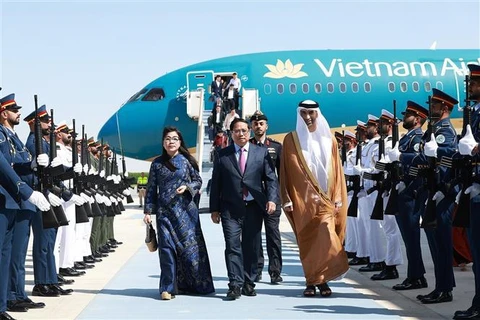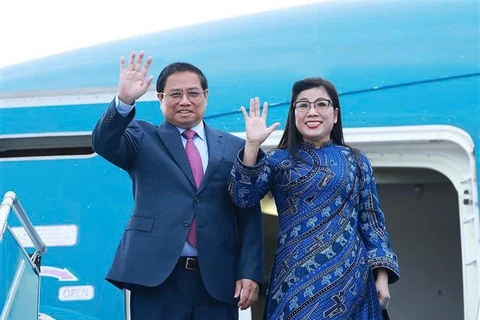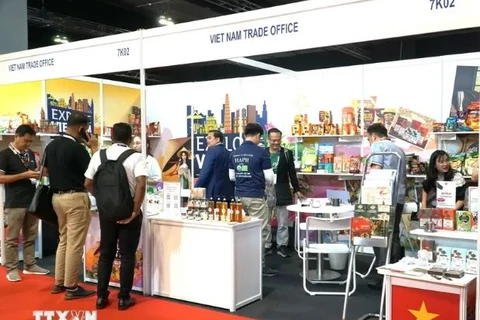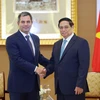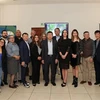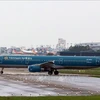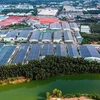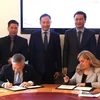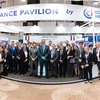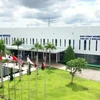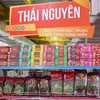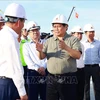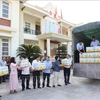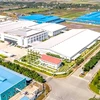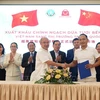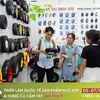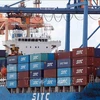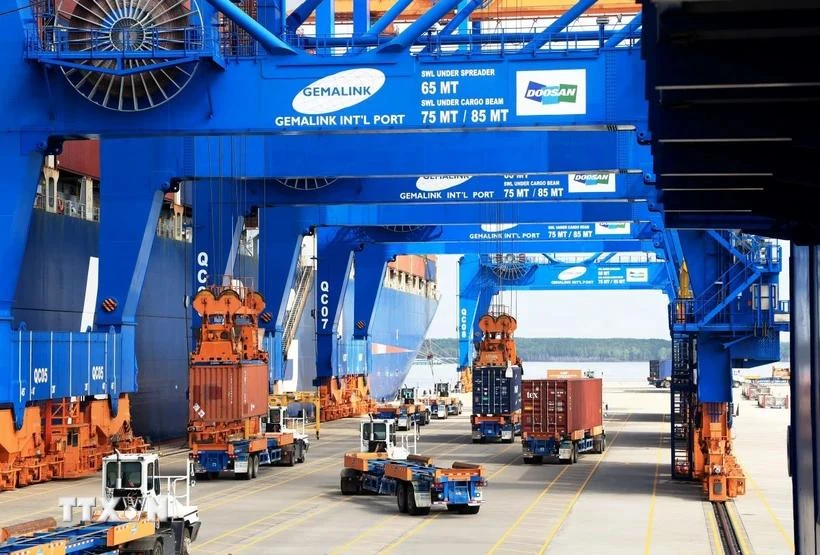
Hanoi (VNA) - The visits to three Middle East countries by Prime Minister Pham Minh Chinh from October 27 to November 1 are hoped to create new momentum to promote trade relations between the parties, while opening up many new aspects of cooperation in the coming time.
Complementary relationships
According to experts, Saudi Arabia, the largest economy in the Gulf Cooperation Council (GCC) region, is one of Vietnam's leading economic partners in the Middle East. Currently, many Saudi Arabian businesses are interested in Vietnamese goods, especially agricultural products and food, in the context that the Middle East country is trying to diversify its supply sources to ensure food security.
In addition, some Saudi Arabian investors are showing interest in Vietnam's projects in the fields of food processing, agricultural products, and garments-textiles. Therefore, the Southeast Asian nation can promote the export of agricultural and aquatic products such as rice, cashew nuts, tea, pepper, coffee, frozen fish, canned fish, food, construction materials, interior decoration products, charcoal, agarwood, and apparel to this market.
Bilateral trade reached nearly 2.7 billion USD last year. Vietnam's main exports include phones of all kinds and components, textiles, wood and wood products, cashew nuts, rice, machinery, equipment and other spare parts, computers, electronic products and components, chemical products, and fruits and vegetables. Meanwhile, Vietnam imports raw plastics, chemicals, liquefied petroleum gas, animal feed and raw materials, base metals, rubber, ores and other minerals from this Middle East country.
As of June, Saudi Arabia had eight investment projects totalling 8.57 million USD in Vietnam. The Saudi Fund for Development (SFD) has been providing preferential loans to 12 projects with a total value of over 164.1 million USD in the Southeast Asian nation.
Notably, Vietnam has recently approved a plan on strengthening international cooperation to build and develop its Halal industry by 2030 - the first setting out a major national direction to open up the potential Halal market with Islamic countries like Saudi Arabia.
Meanwhile, the UAE stands as Vietnam's largest export market in the Middle East and Africa, with two-way trade reaching 4.96 billion USD in the first nine months of this year, higher than the 4.7 billion USD recorded in the whole year of 2023. The two nations are aiming for 10 billion USD in bilateral trade in the coming time.
Vietnam's main exports to the UAE include mobile phones, computers and components, electric products, household electronics, pepper, aquatic products, footwear, textiles, fabrics, pearls, gemstones, cashew nuts, rice, tea, cereal products, plastic products, wooden furniture, fruits, vegetables, and tobacco; while its key imports are plastic materials, LNG, petroleum products, animal feed ingredients, base metals, chemicals, and chemical products.
Qatar, with its strong potential in energy and finance, presents significant economic and investment opportunities for Vietnam. Two-way trade amounted to 497 million USD in 2023, up 32% year on year.
Vietnam mainly imports LPG, raw plastics, chemicals, and fertilisers from Qatar, while selling aquatic products, electric wires and cables, wood products, rattan and bamboo products, ceramics, vegetables, fruits, and electronics to this country.
The Qatar Investment Authority (QIA) has been actively studying and accelerating investment projects, particularly in the fields of real estate and industry in Vietnam. Progress has also been made in education and labour cooperation.
Experts also pointed out that many Vietnamese localities and enterprises are increasingly interested in expanding export markets beyond traditional ones and taking advantage of opportunities to participate in the global supply chain, particularly in Middle East and GCC countries, with Qatar considered a potential partner.
Tapping potential, advantages
In a recent B2B matching between Vietnamese and Arabian enterprises held in Hanoi, Tran Thanh Hai, Deputy Director General of the Agency for Foreign Trade under the Ministry of Industry and Trade, said that cooperation in trade and investment between Vietnam and Arab countries holds significant potential thanks to the complementary advantages and needs of both sides in areas such as energy, infrastructure, real estate, tourism, industry, and processing.
At present, Vietnam's major exports to the Middle East and Africa are rice, coffee, pepper, and aquatic products, Hai said, adding that there remains an ample room for the country to ship apparel, footwear, electronics, and household goods to these markets, especially those with young populations and a growing middle class. On the contrary, Vietnam can import oil, natural gas, and petrochemical products from the Middle East to serve domestic economic development needs.
In addition, Middle East and North African countries have a high demand for imported Halal food due to limitations in domestic agricultural production. With a Muslim population exceeding 40%, their consumption of Halal products, particularly processed food, cosmetics, and pharmaceuticals, is steadily increasing.
In the logistics and maritime transport sectors, Vietnam, with its strategic location, has the potential to become a hub for goods transit between Asia and the Middle East, Hai went on. He added collaborating with leading logistics companies in the region, such as DP World, a premier business hub of the Middle East located in Dubai, of the United Arab Emirates, will enhance supply chain efficiency, and improve connections between Vietnam and Middle Eastern and North African countries.
Truong Xuan Trung, Vietnam Trade Counsellor in the UAE, assessed that Vietnam has a policy of developing relations with Middle Eastern and African countries, including promoting cooperation in production, import, and certification of Halal products. This is also a favourable condition for Vietnamese enterprises to export products to the Halal market whose scale and demand are huge.
To further promote the export of Vietnamese goods to this market, Vietnamese enterprises are required to have Halal certificates to meet standards for export to Islamic countries, he added./.
